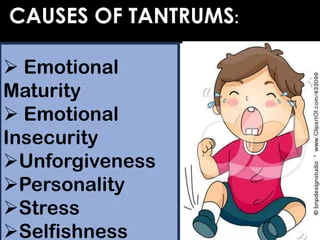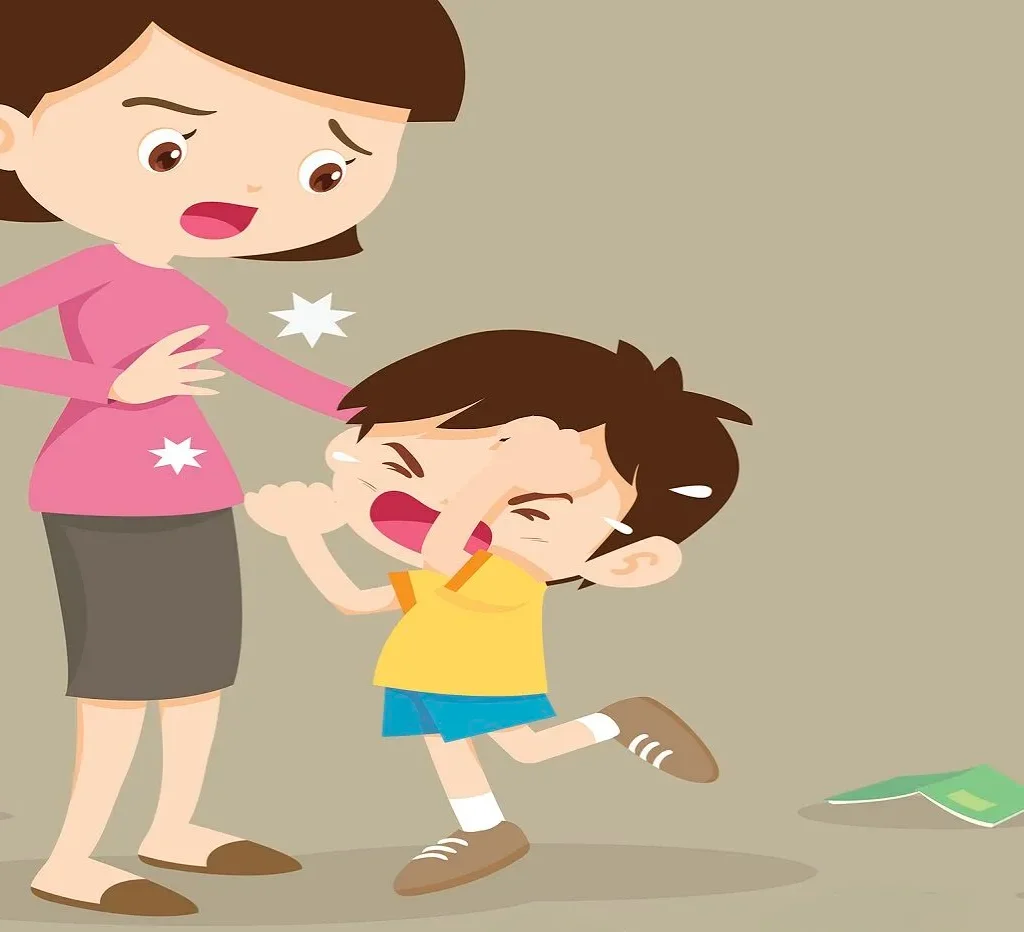Childhood tantrums can be a significant challenge for parents, especially when they occur frequently or intensely. From extreme temper tantrums in 2-year-olds to temper outbursts in 10-year-olds, understanding the causes of tantrums and learning effective management strategies, including a solid parenting discipline strategy, can help reduce the stress associated with these episodes. Additionally, addressing ADHD and tantrums with the right approach can further support parents in managing these challenging behaviors.
What Are Tantrums in Childhood?
A temper tantrum is a sudden, intense display of anger or frustration, typically seen in children aged one to four. Tantrums can involve crying, screaming, kicking, and other forms of physical aggression. These emotional outbursts are a normal part of childhood development, particularly when children are unable to express their feelings through words. Extreme temper tantrums in 2-year-olds are often a sign that the child is struggling with emotional regulation and communication. Helping children navigate these challenges can lead to more happy kids who are better equipped to manage their emotions.

When Do Tantrums Start and When Do They End?
Childhood Tantrums can start as early as 11 months old, with many children experiencing their first significant tantrum between 15 and 17 months. These outbursts often peak during the toddler years, particularly around the age of two, when they may become more frequent and intense. However, tantrums don’t necessarily end after the toddler stage.
Some children continue to have temper tantrums into their preschool and school years. For instance, tantrums in 7-year-olds or even tantrums in 9-year-olds can occur, especially if the child has underlying behavioral or emotional challenges. Managing these tantrums can be particularly challenging during milestone periods like potty training, where frustration and anxiety may heighten emotional responses.
Causes of Childhood tantrums:
Several factors can cause in childhood tantrums:
- Frustration: Young children often experience frustration because they are unable to express their needs or desires effectively. This frustration can lead to outbursts, especially in situations where they feel powerless.
- Attention-Seeking: Some children use tantrums as a way to gain attention from their parents or caregivers, even if the attention is negative.
- Overstimulation: Overwhelming environments, such as crowded places or noisy situations, can trigger tantrums in some children.
- Developmental Delays: Children with developmental delays, such as autism or ADHD, may experience more frequent and severe tantrums due to difficulties in communication and emotional regulation.

18 Positive Strategies at every age to Manage Childhood Tantrums:
One-Year-olds and tantrum:
- Stay Calm: Your child can sense your emotions. Remaining calm and composed can help de-escalate the situation.
2. Set Boundaries: Clearly communicate expectations and consequences. Avoid giving in to demands during a tantrum.
3. Offer Choices: Give your child options to regain a sense of control. For example, “Would you like to wear the blue shirt or the red one?”
4. Redirect Attention: Distract your child with a new activity or toy.
5. Time-Outs: If necessary, use a brief time-out as a cooling-off period.
Extreme Temper Tantrums in 2-Year-Olds:
Extreme temper tantrums in 2-year-olds are common as children struggle to express their feelings. To manage these, parents can:
6. Stay Calm: Reacting with anger can escalate the tantrum. Use a calm, firm voice to address the child.
7. Set Boundaries: Establish clear rules and consequences to help the child understand acceptable behavior.
8. Distract or Redirect: Offer alternative activities to shift the child’s focus from the source of frustration.
Tantrums in 7-Year-Olds:
Tantrums in 7-year-olds may be less frequent than in toddlers, but they can still be intense. At this age, tantrums may indicate unresolved emotional issues. Strategies include:
9. Acknowledge Emotions: Validate the child’s feelings and encourage them to talk about what is bothering them.
10. Teach Coping Skills: Help the child develop coping mechanisms, such as deep breathing or counting to ten.
11. Provide Consistency: Ensure consistent responses to tantrums to reinforce positive behavior.
Extreme Tantrums in 4-Year-Olds:
If a 4-year-old’s temper tantrums are getting worse, it might be due to difficulties in adapting to new routines or environments. Parents can:
12. Maintain Routines: Consistent daily routines provide a sense of security, reducing the likelihood of tantrums.
13. Offer Choices: Giving the child limited choices can help them feel more in control, reducing frustration.
14. Use Positive Reinforcement: Praise and reward the child for managing their emotions effectively.
5-year old temper tantrums:
To handle 5-year-old temper tantrums:
15. Stay Calm and Patient: Respond to tantrums with a calm demeanor, avoiding shouting or getting upset, as it can escalate the situation.
16. Set Clear Boundaries: Consistently enforce rules and consequences, so your child understands what behavior is acceptable.
17. Acknowledge Feelings: Validate their emotions by saying things like, “I see you’re upset. Let’s talk about it.”
18. Teach Coping Skills: Encourage deep breathing, counting to ten, or other calming techniques to help your child manage their emotions.
Gentle Parenting and Tantrums:
Gentle parenting emphasizes empathy, respect, and understanding in guiding children’s behavior. When dealing with tantrums, this approach involves:
- Listening: Taking the time to understand the root cause of the tantrum.
- Empathy: Acknowledging the child’s emotions without judgment.
- Problem-Solving Together: Working with the child to find solutions that address their needs and emotions.
Incorporating the power of play can also be a valuable tool in this approach, as it helps children express their feelings, release stress, and develop problem-solving skills in a positive and engaging way.
ADHD and Childhood Tantrums:
Children with ADHD often experience more intense and frequent tantrums due to challenges with impulse control and emotional regulation. Managing these tantrums may involve:
- Structure and Routine: Providing a structured environment with clear expectations can help reduce the frequency of tantrums.
- Behavioral Therapy: Working with a therapist to develop strategies for managing emotions and behavior.
- Parental Support: Parents can benefit from learning specific techniques to support their child’s emotional development and reduce tantrums.

When to Worry About Toddler Tantrums:
While tantrums are a normal part of childhood development, certain signs may indicate a need for professional help:
- Frequent Tantrums: If a child has tantrums multiple times a day or if tantrums last longer than 15 minutes regularly.
- Severe Tantrums: When tantrums involve self-harm, aggression towards others, or property destruction.
- Regression: If a child who had outgrown tantrums starts having them again, especially with increasing intensity.
Conclusion:
Childhood tantrums are a natural part of growing up, but they can be challenging for parents to manage. Understanding the causes, setting clear boundaries, and responding with empathy can help reduce the frequency and intensity of these outbursts. Whether dealing with extreme temper tantrums in 3-year-olds or managing tantrums in 10-year-olds, the key is to remain patient, consistent, and supportive as your child learns to navigate their emotions.
FAQS:
1. Is it normal for a 5-year-old to have tantrums?
Yes, it is normal for a 5-year-old to have tantrums. At this age, children are still developing emotional regulation skills and may struggle to express their feelings appropriately. Tantrums can be a sign of frustration, tiredness, or unmet needs.
2. Why is my 7-year-old having tantrums?
Tantrums in a 7-year-old can be due to a variety of factors, including frustration, stress, changes in routine, or unmet emotional needs. At this age, children might also experience challenges with social interactions or school pressures, leading to emotional outbursts.
3. At what age do tantrums subside?
Tantrums typically start to decrease in frequency and intensity around the age of 4 or 5 as children develop better communication and emotional regulation skills. However, occasional tantrums can still occur in older children.
4. How to respond to 5-year-old tantrums?
Respond to 5-year-old tantrums by staying calm, setting clear boundaries, and acknowledging their feelings. Offer choices to help them feel in control, and teach coping skills like deep breathing to manage their emotions.
5. How to stop tantrums in childhood?
To stop tantrums in childhood, establish a consistent routine, set clear expectations, and offer positive reinforcement for good behavior. Use distraction techniques during tantrums and teach children healthy ways to express their emotions.
6. How to handle eighteen-month-old tantrums?
Handle 18-month-old tantrums by staying calm, offering comfort, and using distraction to shift their focus. Understand that tantrums at this age are often due to frustration from limited communication skills.
7. How to deal with tantrums in one-year-olds?
Deal with tantrums in one-year-olds by remaining calm, providing physical comfort, and using redirection to engage them in a different activity. Consistent responses and a comforting environment can help reduce tantrums.
8. What to do when a 15-month-old is having tantrums?
When a 15-month-old is having tantrums, try to stay calm, offer comfort, and redirect their attention. Recognize that tantrums are a normal part of development and are often related to frustration over limited communication abilities.
9. How to manage tantrums in a 16-month-old?
To manage tantrums in a 16-month-old, maintain a calm demeanor, provide comfort, and distract them with toys or activities. Consistent routines and gentle guidance can also help reduce the frequency of tantrums.
10. Why does my 18-month-old wake up screaming inconsolably?
An 18-month-old waking up screaming inconsolably could be experiencing night terrors, teething pain, or separation anxiety. Comforting them, ensuring a soothing bedtime routine, and checking for any discomfort can help.
11. What causes tantrums in 8-year-olds?
Tantrums in 8-year-olds can be caused by frustration, difficulty managing emotions, stress, or unmet needs. Social pressures or challenges at school can also contribute to emotional outbursts at this age.
12. Why does my 9-year-old still have tantrums?
A 9-year-old might still have tantrums due to emotional challenges, stress, or unmet needs. It’s important to explore underlying causes, such as difficulty with school or social situations, and provide appropriate support.
13. What are the signs of autism in 18-month-olds with temper tantrums?
In 18-month-olds, extreme tantrums combined with other signs like delayed speech, lack of eye contact, or repetitive behaviors might indicate autism. Consult a healthcare professional for an assessment if you notice these signs.
14. How to handle temper tantrums in 10-year-olds?
Handle temper tantrums in 10-year-olds by staying calm, setting clear expectations, and helping them identify and express their emotions in a healthy way. Encourage problem-solving skills and offer support as needed.
15. Are 15-month-old tantrums a sign of autism?
While tantrums are common at 15 months, frequent or extreme tantrums combined with other signs like lack of communication or social interaction could be a sign of autism. Consult a pediatrician if you have concerns.
16. How to deal with 17-month-old tantrums?
To deal with 17-month-old tantrums, stay calm, offer comfort, and redirect their attention. Understanding that tantrums at this age are part of normal development can help you respond with patience.
17. What can I do about 11-month-old tantrums?
For 11-month-old tantrums, remain calm, offer comfort, and try to distract them with toys or a change of scenery. At this age, tantrums are often related to frustration with limited communication and mobility skills.
External Resources:
Seeking Professional Help for Communication Issues:
Mayo Clinic – Children’s Health

Empowering parents to raise happy, confident kids. Get practical parenting tips and advice on our blog, Smart Parent Guides.
